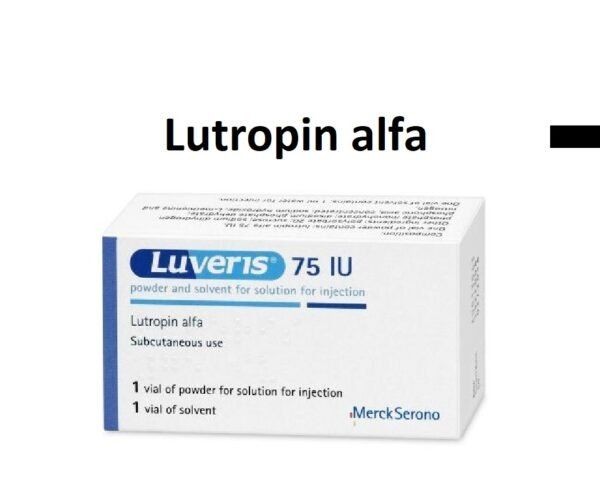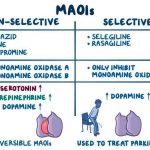
Lutropin Alfa: A Recombinant Hormone for Treating Infertility
Lutropin alfa is a recombinant human luteinizing hormone (LH) used in assisted reproductive technology (ART) to address infertility in women. It is particularly effective for those experiencing hypogonadotropic hypogonadism, a condition caused by insufficient sex hormone production resulting from hypothalamic-pituitary dysfunction.
Together with follitropin alfa, a recombinant follicle-stimulating hormone (FSH), lutropin alfa helps stimulate ovulation in women. These two hormones, FSH and LH, play crucial roles in producing estrogen and progesterone, which are vital for pregnancy implantation, maintenance, and growth. FSH supports follicular development, while LH helps promote the secretion of essential hormones like androgens and estrogen, necessary for the maturation of eggs. After ovulation, LH stimulates the corpus luteum to produce progesterone and estrogen.
Normally, an LH surge triggers the release of mature eggs from mature follicles. In cases where this surge is absent, another hormone called human chorionic gonadotropin (hCG) is administered to complete follicular development and induce ovulation. Lutropin alfa and follitropin alfa are usually administered for the first 14 days of the menstrual cycle, followed by hCG one day after the final dose. It’s worth noting that lutropin alfa was discontinued in the U.S. market in 2012.
Warnings
- Avoid using lutropin alfa if you have any of the following conditions:
- History of hypersensitivity to a human luteinizing hormone product or its components
- Primary ovarian failure
- Pregnancy
- Ovarian cyst or enlargement of unknown origin
- Abnormal uterine bleeding of unknown cause
- Sex hormone-dependent tumors of the reproductive tract and accessory organs
- An uncontrolled organic intracranial lesion like a pituitary tumor
- Uncontrolled thyroid or adrenal dysfunction
- Monitor ovarian response closely to minimize the risk of overstimulation.
- Avoid administering human chorionic gonadotropin (hCG) if the ovaries are abnormally enlarged at the end of lutropin alfa/follitropin alfa treatment to reduce the risk of ovarian hyperstimulation syndrome (OHSS).
- OHSS typically resolves with the onset of menstruation. However, it can be more severe and last longer if pregnancy occurs. Severe OHSS can lead to life-threatening complications such as fluid accumulation in the abdominal and thoracic cavities, low blood volume, electrolyte imbalances, and blood clot blocks.
- OHSS can develop rapidly, so it’s important to monitor ovarian response closely and be aware of early signs and symptoms. If OHSS develops before hCG administration, withhold hCG. In cases of severe OHSS, discontinue gonadotropins, hospitalize the patient, and seek the guidance of a physician experienced in the treatment of fluid and electrolyte imbalances.
Side Effects of Lutropin Alfa
Common side effects of lutropin alfa include:
- Headache
- Nausea
- Abdominal pain
- Gas (flatulence)
- Diarrhea
- Constipation
- Breast pain
- Ovarian hyperstimulation syndrome
- Ovarian cyst
- Ovarian disorder
- Painful menstruation (dysmenorrhea)
- Injection site reaction
- Pain
- Fatigue
- Upper respiratory tract infection
- Blood clot blocks in lungs and blood vessels
- Ovarian torsion (twisting of ovaries)
- Mild to moderate ovarian enlargement
- Bleeding in the peritoneal cavity (hemoperitoneum)
- Ovarian growths (benign or malignant neoplasms)
Medical events subsequent to pregnancy after administration of lutropin alfa:
- Spontaneous abortion
- Extrauterine (ectopic) pregnancy
- Premature labor
- Postpartum fever
- Congenital abnormalities
If you experience any of the following symptoms or serious side effects while using lutropin alfa, contact your doctor immediately:
- Serious heart symptoms such as fast or pounding heartbeats, fluttering in your chest, shortness of breath, and sudden dizziness
- Severe headache, confusion, slurred speech, severe weakness, vomiting, loss of coordination, feeling unsteady
- Severe nervous system reaction characterized by very stiff muscles, high fever, sweating, confusion, fast or irregular heartbeats, tremors, and feeling like you might pass out
- Serious eye symptoms like blurred vision, tunnel vision, eye pain or swelling, or seeing halos around lights
This is not an exhaustive list of all possible side effects or adverse reactions associated with lutropin alfa. Consult your doctor for medical advice regarding serious side effects or adverse reactions. You can also report side effects or health problems to the FDA at 1-800-FDA-1088.
Dosages of Lutropin Alfa
Powder for Injection:
- 82.5 International Units/vial
Adult:
Follicle Stimulation:
- Stimulation of follicular development (in conjunction with follitropin) in hypogonadotropic hypogonadal women with profound luteinizing hormone (LH) deficiency who do not have primary ovarian failure
- 75 International Units subcutaneously (SC) concomitantly with 75-150 International Units follitropin alfa (as 2 separate injections) until follicular development; not to exceed 14 days unless signs of imminent follicular development appear
- Administer human chorionic gonadotropin (hCG) one day after the final dose of lutropin alfa/follitropin alfa
Ovarian Response (Ovarian Ultrasound, Serum Estradiol):
- Renal or hepatic impairment: Safety, efficacy, and pharmacokinetics of lutropin alfa in patients with renal or hepatic impairment have not been established
Pediatric and Geriatric:
- Lutropin alfa is not recommended for pediatric and geriatric populations, as safety and efficacy have not been established in children below 16 years of age and adults above 60 years of age
Overdose
- An overdose of lutropin alfa can lead to ovarian hyperstimulation syndrome (OHSS), a condition characterized by excessive ovarian stimulation resulting in ovarian and abdominal swelling, pain, nausea, diarrhea, weight gain, fluid accumulation, shortness of breath, and reduced urine output.
- In rare cases, severe OHSS can cause serious and potentially life-threatening complications, including ovarian torsion and blood clot blocks in blood vessels, which may lead to stroke, heart attack, or pulmonary embolism.
- OHSS can develop rapidly, so close monitoring of the patient for signs and symptoms is crucial. If OHSS develops before hCG administration, withhold hCG. In cases of severe OHSS, discontinue gonadotropin treatment and hospitalize the patient under the care of an experienced physician.
Drug Interactions
Inform your doctor about all medications you are currently taking to identify any potential drug interactions. Never start or stop any medication or alter your dosage without your doctor’s guidance.
- Lutropin alfa has not been reported to have severe, serious, moderate, or mild interactions with other drugs.
The drug interactions listed above do not encompass all possible interactions or adverse effects. For more information about drug interactions, use the RxList Drug Interaction Checker.
Always inform your doctor, pharmacist, or healthcare provider about all prescription and over-the-counter medications you are using, including dosages, and keep a comprehensive list of this information. If you have any questions about the medication, consult your doctor or healthcare provider.
Pregnancy and Breastfeeding
- Avoid administering lutropin alfa to pregnant women, as limited data are available on the drug’s effect on pregnant women. Animal reproductive studies have indicated potential fetal harm from lutropin alfa.
- The presence of lutropin alfa in breastmilk is currently unknown. Weigh the benefits to the mother against the potential risks to the breastfed infant before using lutropin alfa while breastfeeding, as many drugs are excreted in breastmilk.
Additional Information about Lutropin Alfa
- Ideally, have your injections administered by a trained healthcare professional. If you are self-administering, follow instructions carefully and adhere to the recommended dose and schedule.
- Administer lutropin alfa subcutaneously; do not inject into a muscle.
- Regular monitoring for ovarian response, including blood tests for estrogen levels and ovarian ultrasound scans, is necessary.
- If you miss a lutropin alfa injection on the scheduled day, inform your physician immediately. Do not inject without consulting your doctor.
- Contact your physician immediately if you experience symptoms of ovarian hyperstimulation syndrome, such as severe abdominal swelling and pain, nausea, vomiting, diarrhea, sudden weight gain, decreased urine output, or difficulty breathing. Also, seek prompt medical attention if you notice signs of blood clots in the blood vessels, such as pain or swelling in a leg or arm, chest pain, breathing difficulties, numbness, or weakness on one side of the body.
Subscribe to MedicineNet’s Pregnancy & Newborns Newsletter
By clicking "Submit," I agree to the MedicineNet Terms and Conditions and Privacy Policy. I also understand that I may opt out of MedicineNet subscriptions at any time.
Summary
Lutropin alfa, a recombinant human luteinizing hormone (LH), is used in assisted reproductive technology (ART) to address infertility caused by hypogonadotropic hypogonadism. Common side effects of lutropin alfa include headache, nausea, abdominal pain, gas (flatulence), diarrhea, constipation, breast pain, ovarian hyperstimulation syndrome, ovarian cyst, ovarian disorder, painful menstruation (dysmenorrhea), and others.


